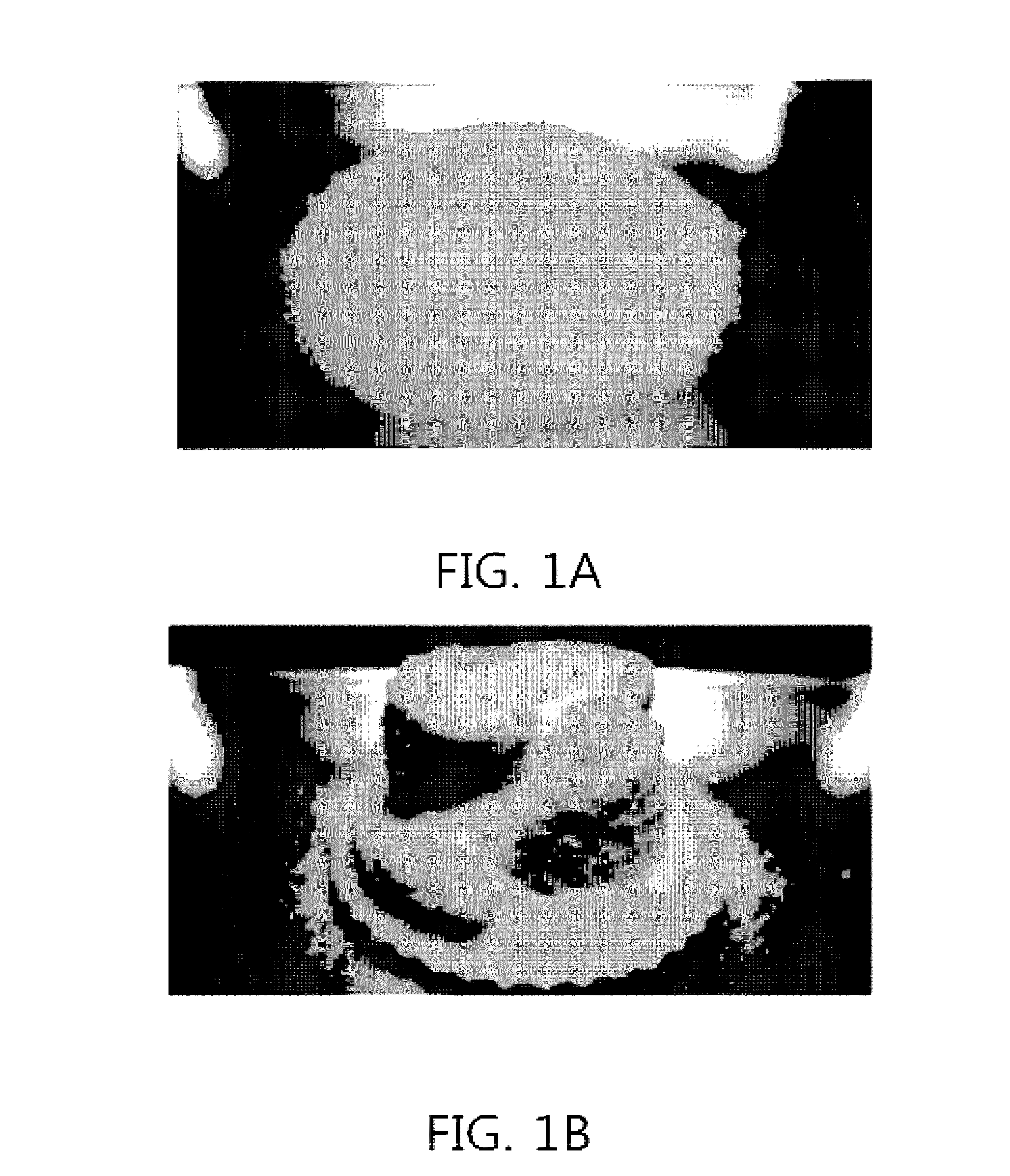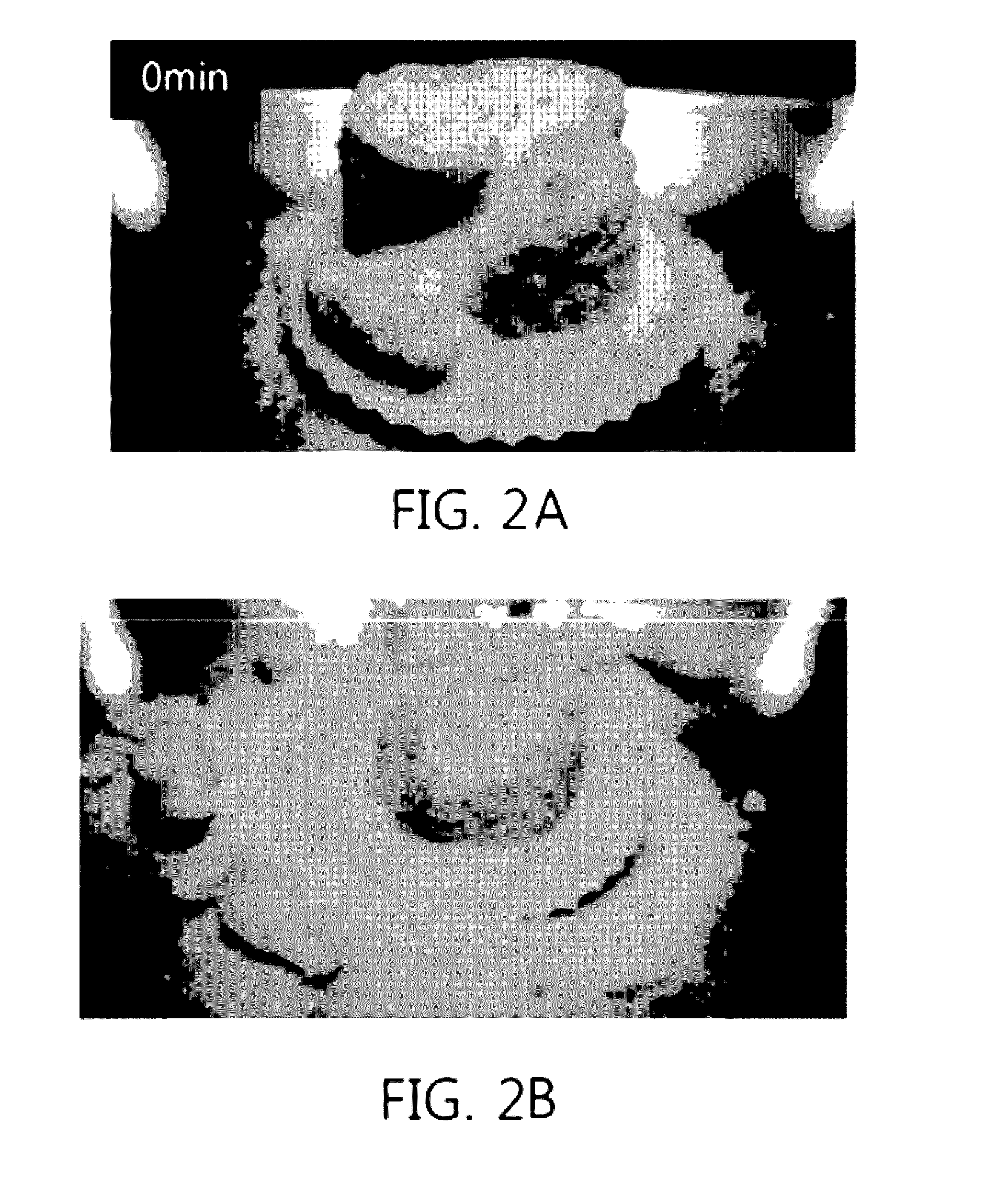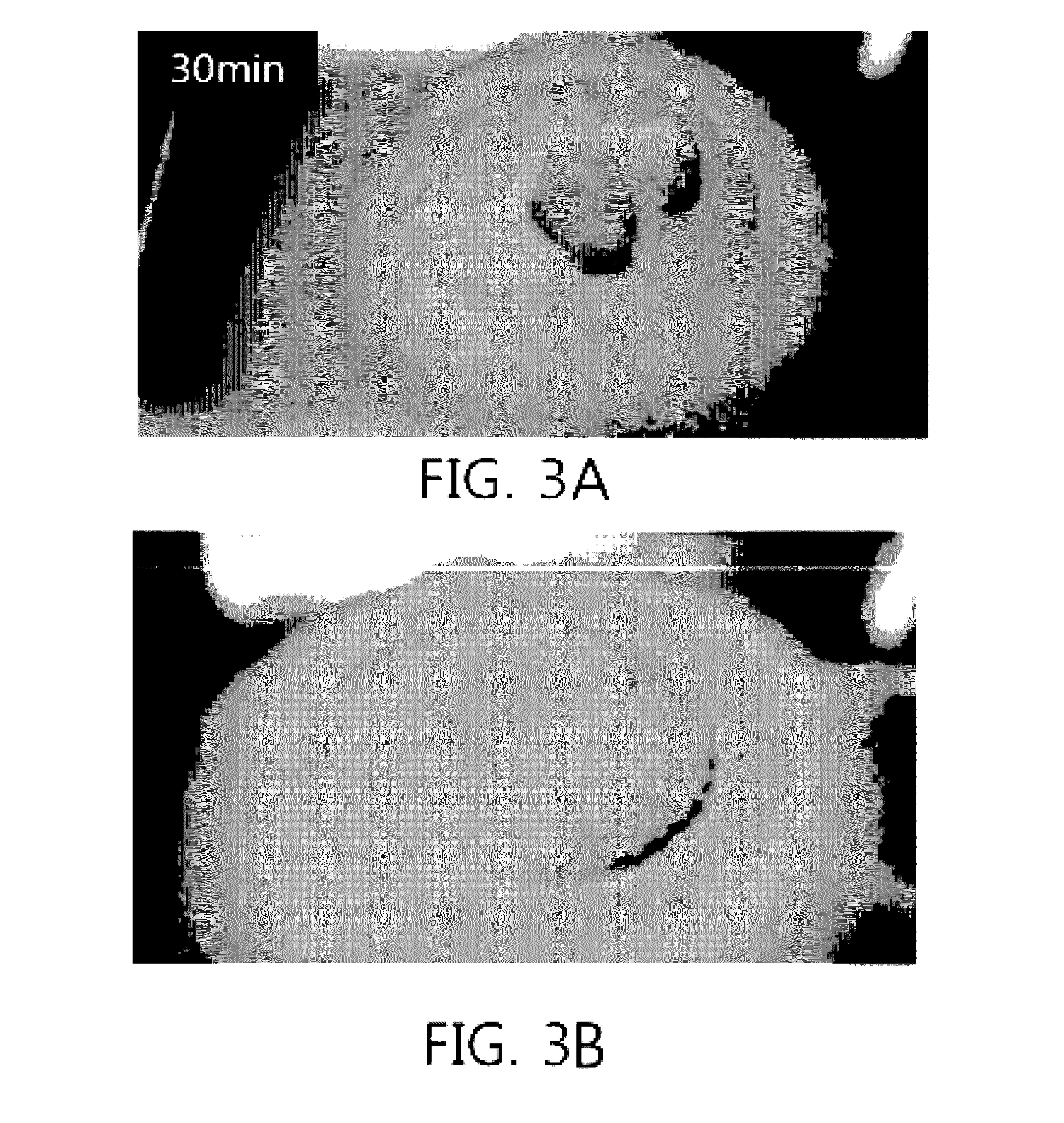Super absorbent resin having improved solidification resistance, and method for preparing same
- Summary
- Abstract
- Description
- Claims
- Application Information
AI Technical Summary
Benefits of technology
Problems solved by technology
Method used
Image
Examples
preparation example
Preparation of Hydrous Gel Polymer and Superabsorbent Polymer
[0102]100 g of acrylic acid, 0.3 g of polyethyleneglycol diacrylate as a crosslinking agent, 0.033 g of diphenyl(2,4,6-trimethylbenzoyl)-phosphine oxide as an initiator, 38.9 g of sodium hydroxide (NaOH), and 103.9 g of water were mixed, thus preparing a monomer mixture. The monomer mixture was then placed on a continuously moving conveyor belt, and irradiated with UV light (at 2 mW / cm2) so that UV polymerization was carried out for 2 min, thus obtaining a hydrous gel polymer. The hydrous gel polymer thus obtained was cut to a size of 5×5 min, dried in a hot air oven at 170° C. for 2 hr, and ground using a pin mill, and then sorted using a sieve, thereby obtaining a superabsorbent polymer having a particle size of 150˜850 μm. As a surface crosslinking agent, a liquid mixture comprising 0.75 g of ethylene carbonate and 6.75 g of water was added and mixed for 60 sec. The resulting mixture was reacted at 190° C. for 60 min, t...
example 1
Preparation of Superabsorbent Polymer Having Improved Anti-Caking Properties 1 (Temperature Control)
[0108]In order to evaluate anti-caking of particles a long period of time after addition of water to a superabsorbent polymer, testing was carried out in such a manner that water was added under the condition that the temperature of a superabsorbent polymer was raised. Specifically, a superabsorbent polymer treated with 600 ppm of an aerogel as porous superabsorbent microparticles was placed in an oven and adjusted to about 60° C., after which the superabsorbent polymer was placed in a stirrer maintained at 70° C. and then added with 2.5 wt % of water. Subsequently, 100 g of the sample was taken and then underwent a load of 2.66 psi for 1 hr, after which caking of the superabsorbent polymer was checked.
[0109]To compare a difference in caking of the superabsorbent polymer particles at different temperatures, the temperature of the superabsorbent polymer and the temperature of the stirr...
example 2
Preparation of Superabsorbent Polymer Having Improved Anti-Caking Properties 2 (Aging Time Control)
[0110]In order to evaluate anti-caking of particles a long period of time after addition of water to a superabsorbent polymer, testing was carried out in such a manner that water was added under the condition that a superabsorbent polymer was at room temperature, followed by aging for a predetermined aging time. Specifically, a superabsorbent polymer treated with 600 ppm of an aerogel as porous superabsorbent microparticles was added with 2.5 wt % of water, and then aged for an aging time of 30 mm using a stirrer such as a kitchen-aid at room temperature. The sample not subjected to aging was used as control of Example 2. Consequently, as is apparent from FIG. 2 where caking testing was immediately performed (0 min) without aging, caking of the superabsorbent polymer particles was seriously caused, and such caking was maintained even by finger touch. Whereas, as is apparent from FIG. 3...
PUM
| Property | Measurement | Unit |
|---|---|---|
| Temperature | aaaaa | aaaaa |
| Temperature | aaaaa | aaaaa |
| Temperature | aaaaa | aaaaa |
Abstract
Description
Claims
Application Information
 Login to View More
Login to View More - R&D
- Intellectual Property
- Life Sciences
- Materials
- Tech Scout
- Unparalleled Data Quality
- Higher Quality Content
- 60% Fewer Hallucinations
Browse by: Latest US Patents, China's latest patents, Technical Efficacy Thesaurus, Application Domain, Technology Topic, Popular Technical Reports.
© 2025 PatSnap. All rights reserved.Legal|Privacy policy|Modern Slavery Act Transparency Statement|Sitemap|About US| Contact US: help@patsnap.com



